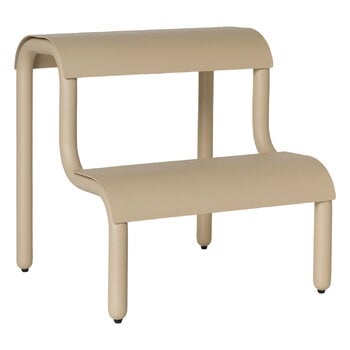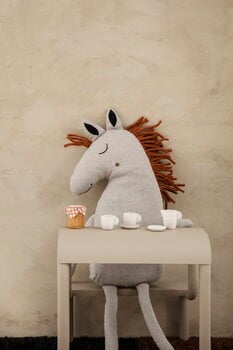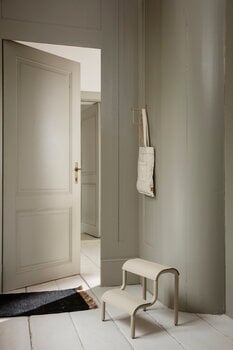ferm LIVING’s Up Step stool has a playful organic silhouette that makes the piece a fun addition to any room of the home. Made of iron, the stool is made up of two bent metal tubes that form the legs, with two steps attached between them. The surface of the rounded steps has been roughened to prevent their curved surface from being slippery.
Up Step is ideal as a kitchen step stool as well as a multi-purpose piece of furniture in the kids' room – in the latter case, we recommend that the child first practice stepping on the curved steps with an adult. The stool also works great as a small side table and a display for decorative objects or house plants, for example.










